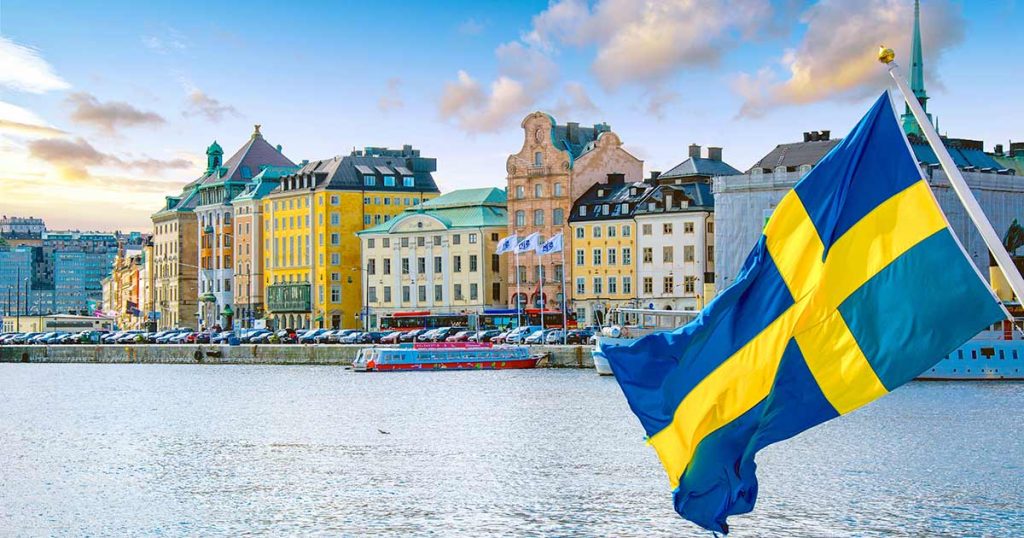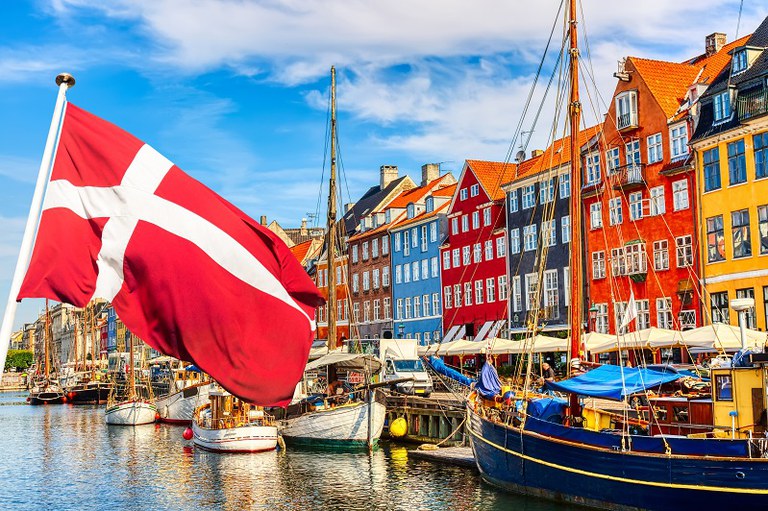The quality of higher education in Nordic nations can inspire you to travel to this part of the world. You can study in some of the best universities in Nordic countries for international students. When it comes to Nordic education, countries like Denmark, Finland, and Sweden lead with examples. Around 90% of higher education in Finland is publicly funded, while Sweden spends 3% of its GDP on R&D. Danish universities such as the University of Copenhagen, the Technical University of Denmark, the University of Southern Denmark, and Aalborg University are some of the noted universities of this nation.
It’s not just the quality of education that makes the Nordic nations stand out, but even their work-life balance; it is appreciated across the world. Besides flexible working hours, they support their working professionals with sufficient parental leave, affordable childcare, eldercare assistance, gender equality policies, and the like, which makes them rank higher in happiness, contentment, and well-being indexes. This is one of the primary reasons why people are inclined to work in Nordic countries. Interestingly, Denmark, Sweden, and Finland are also the top European countries for innovation.
If your search for a suitable nation to study further and work has brought you here, then you are in the right place and probably at the right time. We have created this blog for you to understand the scenario of higher studies abroad, with special consideration for Nordic education and career opportunities in Nordic countries.
Top-Tier Education System
Nordic education is one of the best-in-class systems for pursuing higher education. Whether you study in Denmark, Finland, or Sweden, you can avail yourself of the benefits of studying in Nordic countries for international students. As mentioned above, around 90% of higher education in Finland is publicly funded. Swedish higher education follows the ‘freedom with responsibility’ theory, which allows students liberty to develop learning skills, critical thinking, make decisions on their own, and also cultivate time management skills. These build the profound bases for stronger learning abilities. The Danish education system is designed for a more holistic learning experience for the students. What adds to the convenience are scholarships, which further make higher studies more affordable and enable students to pursue them without depending on their parents.
Prestigious Rankings and Quality Teaching
Among the top universities of the world, you will find an impressive number of Nordic universities as well. For instance, the University of Lund ranked 106 in the Times Higher Education (THE) World University Rankings, followed by the University of Lund, which ranked 106. What takes the Nordic universities to the topmost positions is a collective effort to create a holistic and rewarding learning experience. Among other things, the quality of teaching in these institutions plays a pivotal role in taking the institutions to their positions; the faculties and the education infrastructure are top-notch. Also, every year, a significant percentage of the students arrive in this part of the world because of affordable higher education in Denmark, Finland, and Sweden.
Work Opportunities for Students and Professionals
Whether you study in Finland, Denmark, or Sweden, or any Nordic nation, you can avail yourself of the attractive job opportunities. If you are pursuing professional courses, it can ideally boost your career to the next level. According to 2022 data, the rate of employment across all Nordic nations was more than 14.6%, which is more than the EU average. Since employment is the primary motivation behind enhancing learning, better work opportunities will always attract more takers. The Nordic countries surpassed other nations with respect to better work opportunities for students and working professionals. There are ample post-study work opportunities in Nordic countries for graduates and working professionals. This is why it doesn’t create an ambiance of animosity but coexistence between students and working professionals. This is why you must not worry over ‘why choose Nordic countries for higher education abroad,” but choose one wisely.
Everything About ‘Work Rights’ that You Must Know
If you are an international student in a Nordic nation, knowing about the rights to work is going to help you more than you can guess. Students working part-time can work for up to 25 hours every week and pay applicable tax on their income. If you are working full-time, you must work 8 hours a day, 5 days a week, which totals 40 hours per week, and pay tax on your income. The working hours are in Finland and Sweden, while in Denmark, the full-time working hours is 37 hours per week and 20 hours per week for part-time workers.
High-On-Demand Sectors
Looking at the industries in Finland, Denmark, and Sweden, there is an exponentially growing demand in their IT sector – software developers, cybersecurity experts, data scientists, cloud computing engineers, AI/ML specialists; healthcare and social services – specially trained nurses, eldercare, doctors or remote or lesser served areas, R&D, biotech and others; Genentech and sustainable energy – green transition energy systems, building on green efficiency, wind power, EV battery manufacturing, green steel, bio energy, hydropower, geothermal and others. Adding to these, demands in the education sector – STEM, special education, research and innovation; real estate and urban infrastructure – climate flexible infrastructure and energy-efficient building, retrofitting, regular carpenters, plumbers, civil engineers.
The Ecosystem of Start-Ups and Innovations
When we talk about Nordic nations with special reference to Finland, Sweden, and Denmark, we must mention their robust ecosystem of start-ups and innovations. Finland’s business ecosphere is very strong in deep-tech, health tech, clean tech, education technology, and gaming. It’s government also supports and proactively funds its projects through Business Finland, Tekes, and Finnvera. Interestingly, clean technologies, space technology, AI, 6G, and research in telecommunications are the current sectors where the nation is focusing its attention.
In Sweden, the inclination is more towards sustainability and green innovation. Interestingly, most of the innovations in Sweden are in Greentech, battery technology, Fintech and Insurtech, AI/ML in manufacturing and healthcare, music technology, and gaming. So if you study in Sweden, you may end up with opportunities to work in any of these sectors.
Denmark is more focused on healthtech, biotech, medtech, agritech, and climate tech. The government supports these sectors with sufficient funding through Innovation Fund Denmark, Export Credit Agencies, and others.
Work Ambiance and Compensation
When it comes to the working ambiance and compensation in Nordic nations such as Sweden, Denmark, and Finland, it reflects equity, employee friendliness, and liberalism. Employee suggestions are valued as inputs; they value equality, and managers usually don’t have the air of superiority. They trust their teammates to complete their tasks, manage their time, and add value to their roles. What’s more important is that their work is well compensated. The average gross monthly salary in Denmark is €5,600–€6,400 and is complemented with interesting perks such as gym memberships, paid lunches, home-office setup, some companies even offer profit-sharing options. In Sweden, the average monthly salary is €3,300–€3,900, with added perks such as private health insurance, wellness grants, additional training by the company, and contributions to a pension. Finland has one of the best working environments and good compensation; the average gross monthly salary is between €3,800 and €4,500 with additional benefits like meal coupons, flexible working hours, options to work remotely, health allowances, and more.
If you ever wonder why choose Nordic countries for higher education abroad, then ask yourself what kind of life you want. Besides a supportive environment for holistic learning, the cost of studying in Sweden, Finland, and Denmark for international students is affordable, and the working ambiance promises a great future. So, investing in studying abroad, either in Denmark, Sweden, or Finland, can be a worthy investment. To ease the financial burden, you can also opt for scholarships for studying in Nordic countries. If you have reached this part of the blog, then you are actually keen on the right guidance for studying in Nordic countries. Why not? They offer the right kinds of environment for student life and career prospects in Denmark, Finland and Sweden; they are the best places for international students in Europe. We hope you make the right decision for your higher studies, and if you are still in a fix, then let us know. We have experts to guide you with details and proven pathways.
Written by Mousumi Sarkar.



